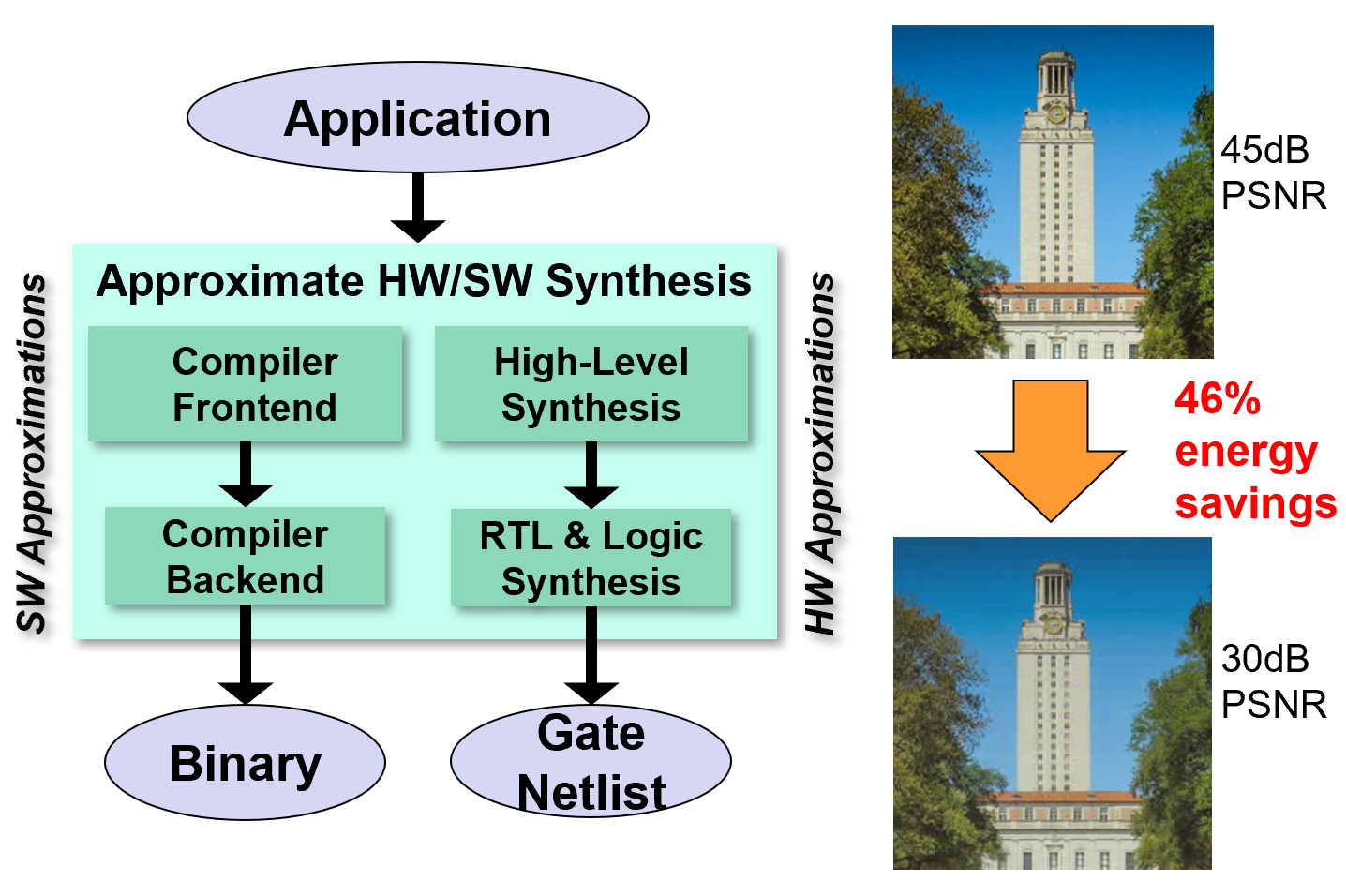Approximate Computing
Project Overview

Approximate computing has emerged as a novel paradigm for achieving significant energy savings by trading off computational precision and accuracy in inherently error-tolerant applications, such as machine learning, recognition, synthesis and signal processing systems. This introduces a new notion of quality into the design process. We are exploring such approaches at various levels. At the hardware level, we have studied fundamentally achievable quality-energy (Q-E) tradeoffs in core arithmetic and logic circuits applicable to a wide variety of applications. The on-going goal is fold such insights into formal analysis and synthesis techniques for automatic generation of Q-E optimized hardware and software systems.
Selected Publications
-
Seogoo Lee, Lizy K. John, Andreas Gerstlauer, "High-Level Synthesis of Approximate Hardware under Joint Precision and Voltage Scaling," Proceedings of the Design, Automation and Test in Europe (DATE) Conference, Lausanne, Switzerland, March 2017.
[
 pdf]
pdf]
-
Jin Miao, Andreas Gerstlauer, Michael Orshansky, "Approximate Logic Synthesis under General Error Magnitude and Frequency Constraints," Proceedings of the IEEE/ACM International Conference on Computer-Aided Design (ICCAD), San Jose, CA, November 2013.
[
 pdf]
pdf]
-
Jin Miao, Ku He, Andreas Gerstlauer, Michael Orshansky, "Modeling and Synthesis of Quality-Energy Optimal Approximate Adders," Proceedings of the IEEE/ACM International Conference on Computer-Aided Design (ICCAD), San Jose, CA, November 2012.
[
 pdf]
pdf]
-
Ku He, Andreas Gerstlauer, Michael Orshansky, "Circuit-Level Timing-Error Acceptance for Design of Energy-Efficient DCT/IDCT-based Systems," IEEE Transactions on Circuits and Systems for Video Technology (TCSVT), vol. 23, no. 6, June 2013.
[
 pdf]
pdf]
People
Seogoo Lee
2017, Cadence, Pittsburgh, PA
Jin Miao
2014, co-supervised with Prof. Orshansky, Cadence, San Jose, CA
Ku He
2012, co-supervised with Prof. Orshansky, Cirrus Logic, Austin, TX